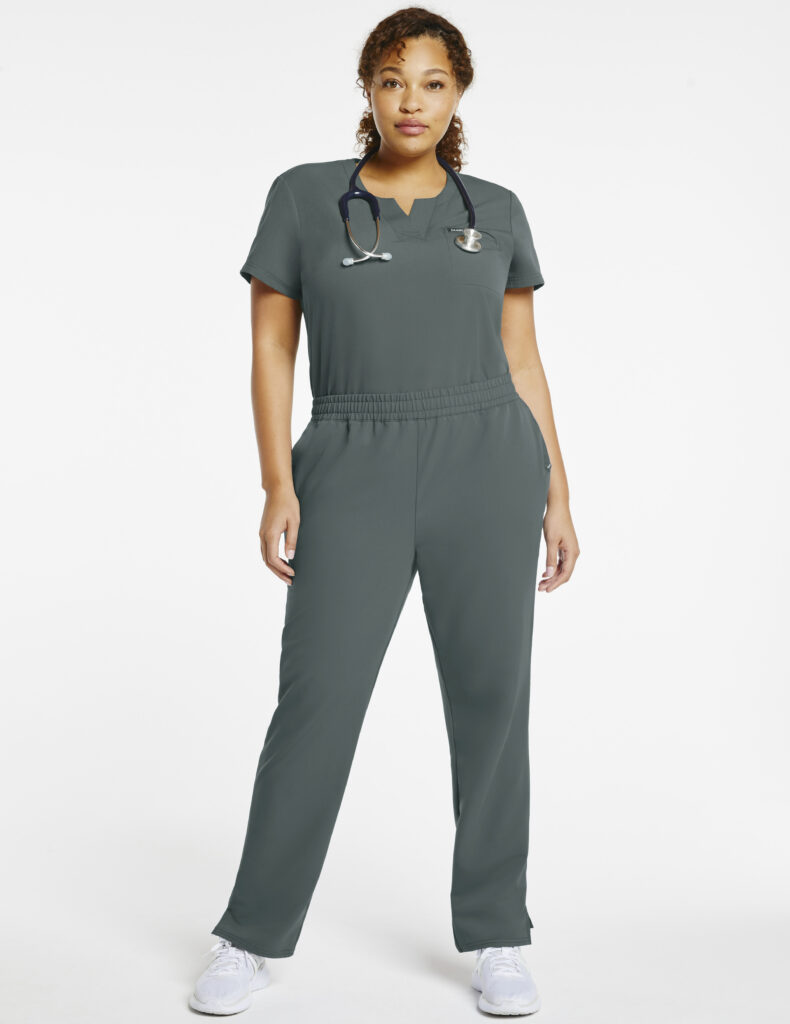We’re not going to lie: As a career, nursing is anything but easy… Sure, it can be overwhelming sometimes, but it’s equally rewarding. There’s no denying nurses have an enduring work life, but they also enjoy some amazing perks, like job stability.
While stability may be comforting, it’s not reason enough to start down any career path. If you’re considering becoming a nurse, you should be passionate about the profession because sometimes, you may find yourself in situations where you have to communicate tough diagnoses to patients and their families. Here, you’ll need empathy. Sometimes, you’ll have to take a call to save a patient’s life. You should also have innate skills to help you succeed in trying moments.
To help you answer the question if you should be a nurse, we’ll explain what this career takes and who is a good fit for the role. We’ll also give you a few practical points on what education you’ll need to start your career and how much you can expect to earn.
Qualities of a good nurse
It’s time to do some soul searching. As you look at the list of qualities of good nurses below, be honest with yourself about whether or not you possess them. You can learn or perfect some of these qualities (i.e., active listening), but others should be innate. Here are some essential qualities of great nurses and why they’re important:
- Patience: Nurses aren’t the only ones stressed in a clinical environment. All healthcare professionals are, as are their patients. This means emotions run high, and nurses should have the patience to deal with them.
- Flexibility: Each shift is different, which keeps nurses on their toes. Good nurses prepare for everything—which isn’t limited to carrying all the tools of their trade around. Nurses think calmly and quickly and are ready to face an emergency.
- Active listening: Strong communication skills are crucial to ensuring that patients’ concerns are heard and escalated promptly. Nurses must perfect the art of active listening, which requires making eye contact, remembering important details, and showing empathy through facial expressions and gestures.
- Teamwork: Nurses work in a team of healthcare professionals to implement care plans. They must be able to communicate effectively with their peers.
- Attention to detail: Nurses write and read a lot of charts. It’s just a part of the job. When describing or understanding a condition, attention to detail can save a patient’s life.
Why should I become a nurse?

Do you think you have what it takes to become a nurse? This is most likely the sign you’ve been waiting for. You’re about to embark on a rewarding career. Here’s why:
- Nursing jobs offer flexible schedules: If you want to be at home to help with childcare during the day, you can work at night. If you want a summer vacation like how you did in school, try working as a school nurse. Many nurses may work a 12-hour shift, but various scheduling styles exist.
- Work environments are varied: Nurses work everywhere, from hospitals to flights. You could work on an emergency vehicle if you want a fast-paced setting. If you like a quieter shift, try working at a private practice or specializing in research or teaching.
- You can specialize: Nursing positions allow you to delve deep into an area of medicine you love. There are nursing specialties like intensive care unit (ICU), critical care, geriatrics, oncology, and pediatrics, to name a few. There are more than 100 types of nurses overall.
- You have opportunities for advancement: The nursing field offers high-level career options like advanced practice registered nurse (APRN) roles, a designation that includes nurse midwives, nurse practitioners, clinical nurse specialists, and anesthetists. These professionals take on tasks that physicians usually do and earn very well for their work.
On the contrary, if the entire healthcare industry appeals to you instead of only nursing, you’re probably wondering: Should I be a nurse or doctor? You can answer this question by considering what kind of education you’d like to pursue and how much responsibility you want to take on. Doctors must attend four years of med school, followed by a residency for a minimum of three years. In contrast, nurses attend a two-year Associate Degree in Nursing (ADN) program or a four-year Bachelor of Science in Nursing (BSN). After completing their studies, doctors are responsible for diagnosing patients, prescribing medication, establishing care plans, and performing advanced medical procedures. Nurses, on the other hand, focus on bedside care.
If becoming a doctor or a nurse doesn’t hit the mark and you’re wondering if there’s something between these two, the next question may be: Should I be a nurse practitioner? Nurse practitioners share some of the work of both nurses and doctors. They provide direct bedside care and can prescribe medicine and make diagnoses.
What to expect daily in a nursing career
So you’re all set and have made a decision. Check out the following list of daily nursing tasks that you’ll carry out:
- Assessing and monitoring patients’ conditions
- Taking patients’ vital signs
- Administering medications (oral and intravenous)
- Educating patients and their families on diagnoses and treatments
- Implementing patient care plans formed by your team
- Performing wound care
- Making sure that patients are comfortable and have their basic needs met
- Keeping detailed patient records
Nursing salary

How much will I earn? This is probably one of the most important questions you may have right now. This can actually be a final deciding factor!
According to the U.S. Bureau of Labor Statistics (BLS), registered nurses (RNs) earn around $77,000 annually on average. Advanced practice nurses make in the six-figure range, with the highest-earning (nurse anesthetists) bringing in around $200,000 yearly.
Nursing: a gratifying job
What’s the final piece of the puzzle and that last percent of conviction you need? Nursing is rewarding work. Not only do nurses watch patients heal and have valuable interactions with people from all walks of life, but they’re also constantly learning. Nurses learn to handle complex emotions, have difficult discussions gracefully and manage stress through therapeutic self-care.
We’re pumped you’re thinking about becoming a nurse. You’re about to join the ranks of people we most admire. We’ll be behind you every step of the way, outfitting you with comfortable performance scrubs and keeping you up on trending topics pertinent to the nursing profession.

